Clear skin isn’t easy
Some people never have to deal with the difficulties of a spotty complexion; others just take extra steps to manage their acne, something that the American Academy of Dermatology says is possible with diligence. Here are the secrets of blemish-free.
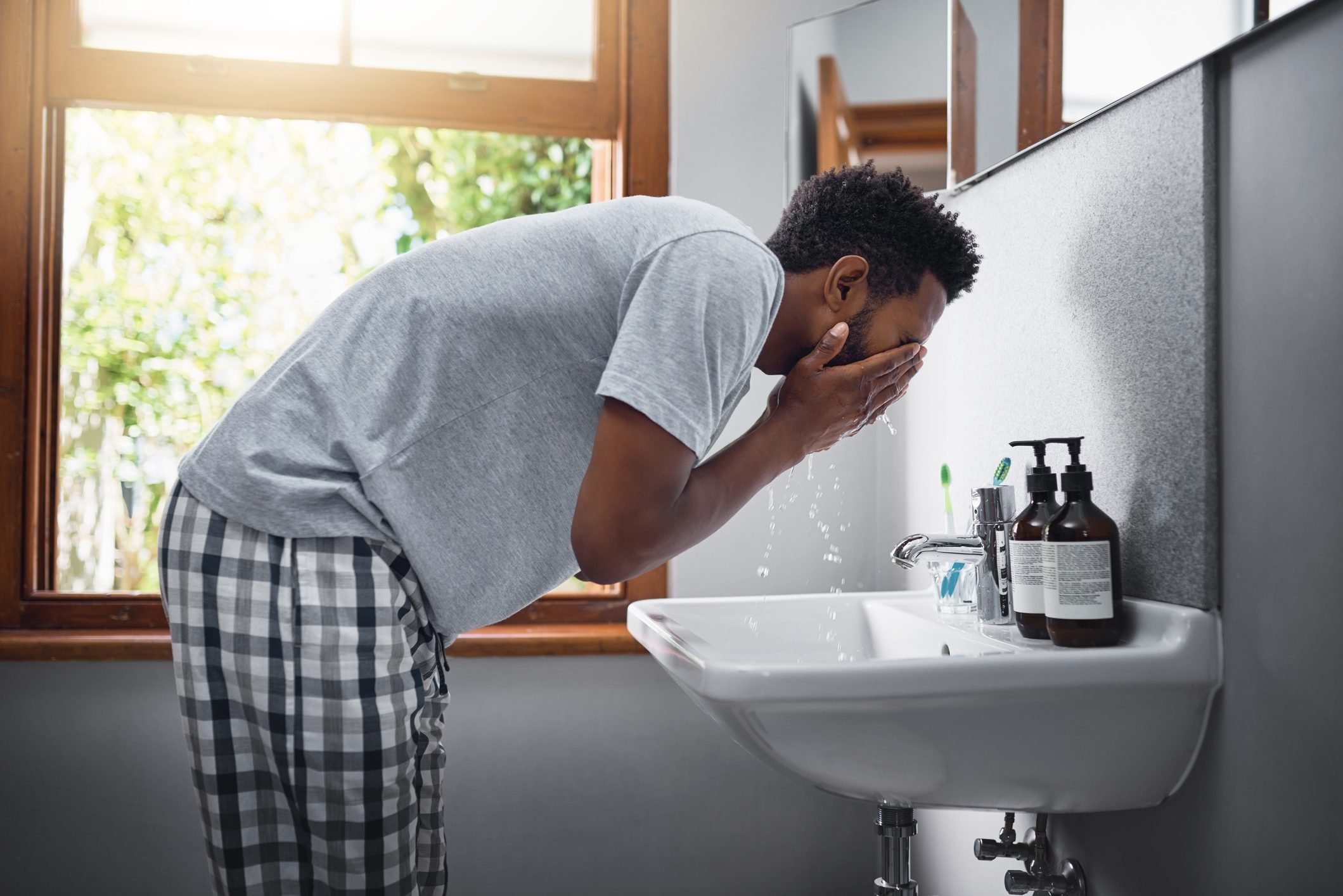
They never skip a face-wash
Wondering how to prevent acne? You might start by considering your choice of skin cleanser and how often you use it, says Joshua Zeichner, MD, director of Cosmetic and Clinical Research and assistant professor of dermatology at Mount Sinai in New York City. “While having acne does not mean that you are dirty, washing your face has been shown in studies to improve the appearance of acne,” he says. Using a gentle skin cleanser that effectively removes dirt, oil, and makeup from the skin can help maintain a healthy skin barrier. ” The key is to actually wash your face. Every. Single. Night. Skipping your daily face wash regimen, he adds, may lead to breakouts as dirt, oil, and makeup can block your pores.
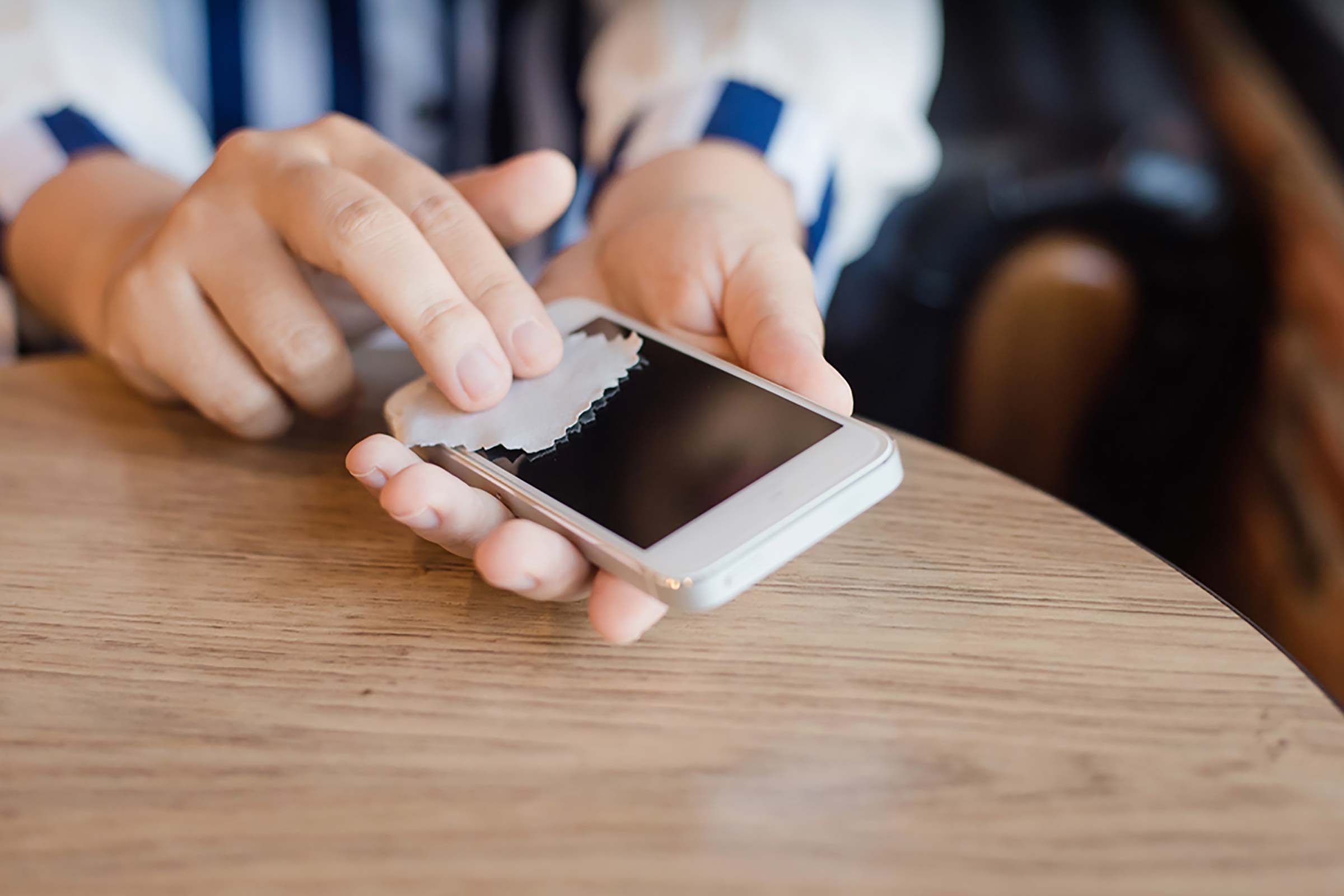
They clean their smartphones
Don’t freak out, but your phone screen is way dirtier than you think. “Studies have shown that your cell phone is dirtier than a public toilet,” Dr. Zeichner says. “If you are not cleaning it regularly with an alcohol swab and it rubs against your face, you may be transferring that dirt to the skin, which combined with friction, may promote breakouts,” he says. Texas-based dermatologist Ted Lain, MD, adds. “Plastering a phone to your cheek for minutes on end could lead to not only occlusion of the pores, but also infection and then acne,” he says.

They never touch their face
Frequent face-touching can cause breakouts, Dr. Zeichner says. “Leaning on your palm during the day can create friction against the skin, create inflammation and actually transfer dirt and oil that may get trapped in your pores,” he says. The solution? Don’t do it.
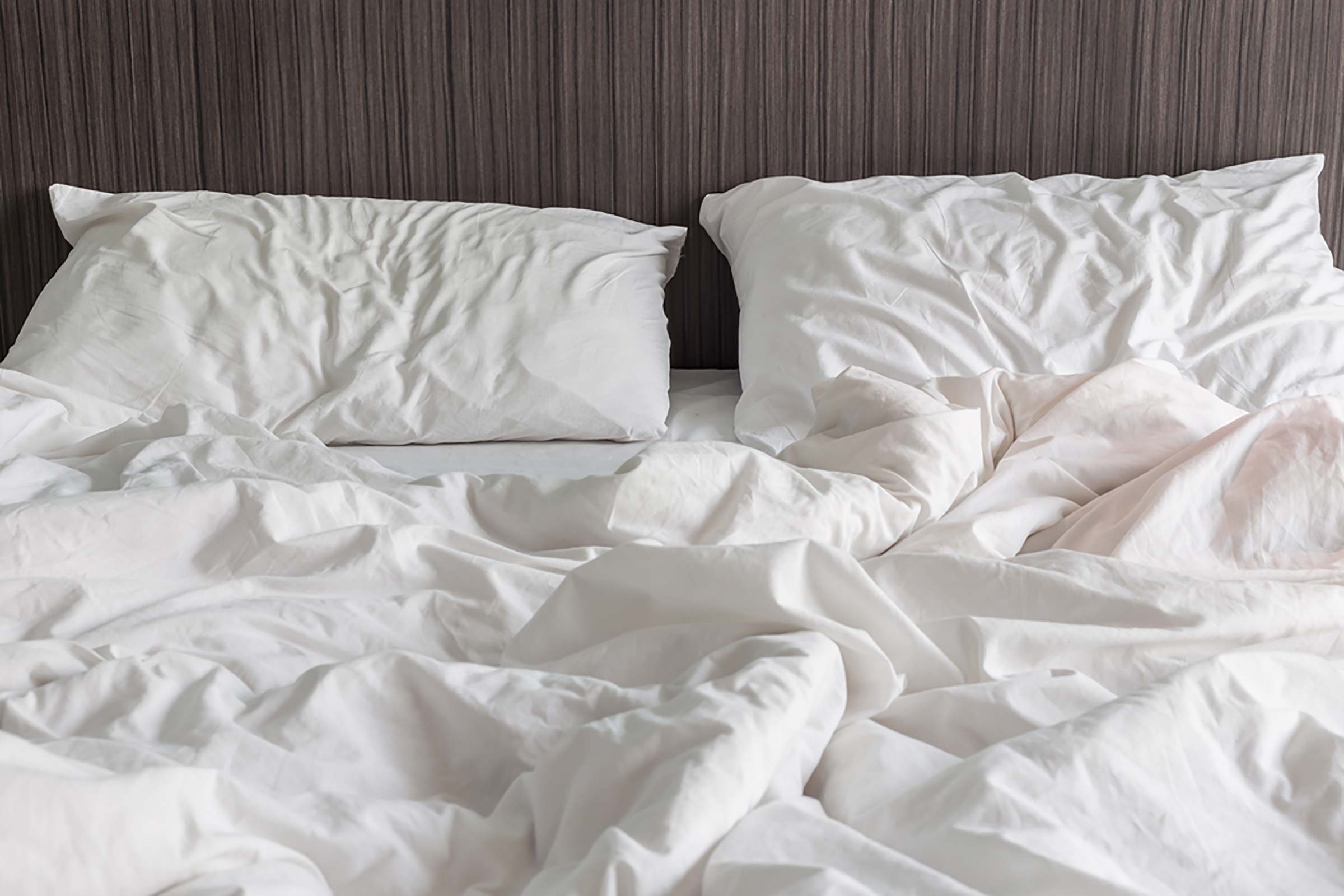
They change their pillowcases frequently
Even if you are steadfast in your nighttime face washing ritual, not changing your pillowcase on a regular basis can result in breakouts. When you don’t refresh your pillowcase at least once per week, dirt and oil build-up, and when you put your face into the pillow at night, these blemish-causing substances can clog your pores, explain Betty Rajan, MD, a dermatologist in Fort Worth, Texas. The type of pillowcase doesn’t matter much when it comes to the transfer of dirt and oil, but one of the ways that dermatologists wake up with younger-looking skin is by sleeping on soft, less abrasive pillowcases.

They eat like Greeks
Add better skin to the list of benefits associated with a traditional Mediterranean diet, says Dr. Lain. This healthy way of eating is rich in vegetables, olive oil, whole grains, plus small amounts of lean animal protein and of course, some red wine. “It is clear that the typical American diet, which is high in refined flours and saturated fats, bodes poorly for a good complexion.” This may be one of the reasons that resveratrol, the beneficial compound in red wine, is popping up in skin-care products. These are the foods that may help get rid of acne.
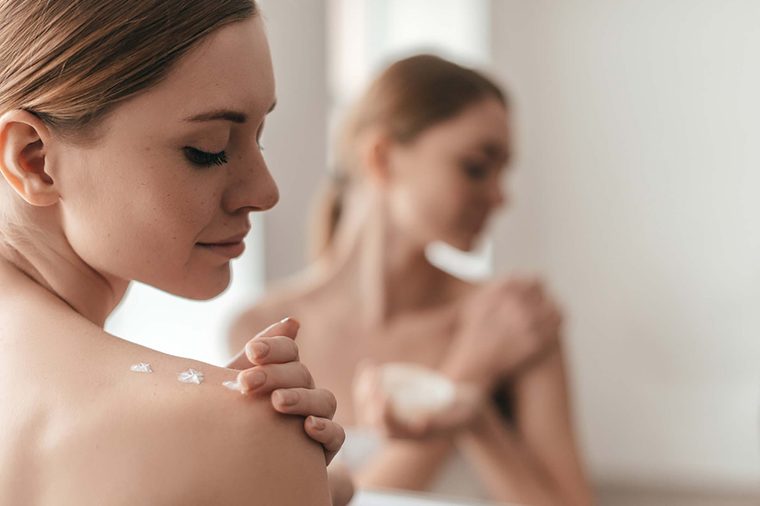
They try to never pick, pop, or squeeze
Picking or scratching at your acne leads to open wounds, prolonged healing, and sometimes scarring, Dr. Lain says. “In addition, we all have bacteria on our hands, therefore you transfer bacteria to your face and lead to more infection.” These are the 6 things you need to know about treating acne scars.

They try to watch their weight
Being overweight or obese is a risk factor for a host of illnesses including heart disease and some forms of cancer, and there is a link between acne severity and obesity too. “To minimize acne risk, keep your body mass index in the ideal range by exercising, eating correctly, and minimizing sugar intake,” Dr. Lain says.
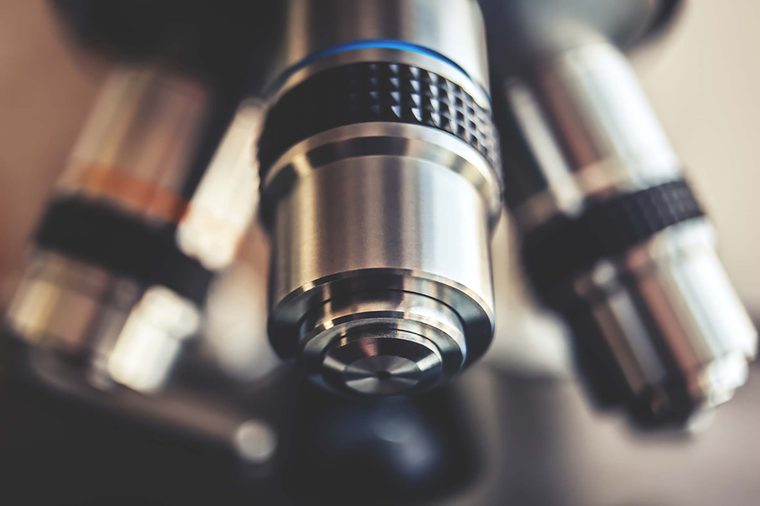
They mind their microbiome
The microbiome is the collection of normal bacteria, fungi, and viruses that live on the skin and in our gut. A growing body of research suggests that a balanced microbiome is super important for skin health. “There is no one skin-care product or supplement that will absolutely protect or repair the microbiome,” Dr. Lain says, but some studies have shown that people with acne tend to have an imbalance of good to bad gut bacteria and that certain probiotics (such as Lactobacillus paracasei) can improve barrier function and make skin less reactive.
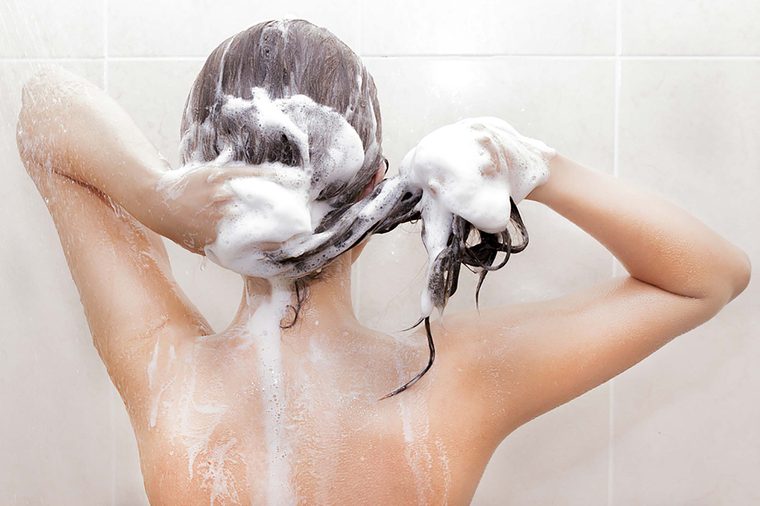
They try to wash their hair regularly
All of the natural oils produced by our scalps to protect the hair can also clog pores on the face and lead to acne, Dr. Lain says. “Washing hair helps remove the excess oil on the scalp and hair, which minimizes the oil at the hairline and forehead.” But avoid heavy, oily hair-care products during styling, Dr. Zeichner warns. Touching the skin on the forehead may block pores and lead to pimples. Find out how dermatologists get rid of their own pimples.
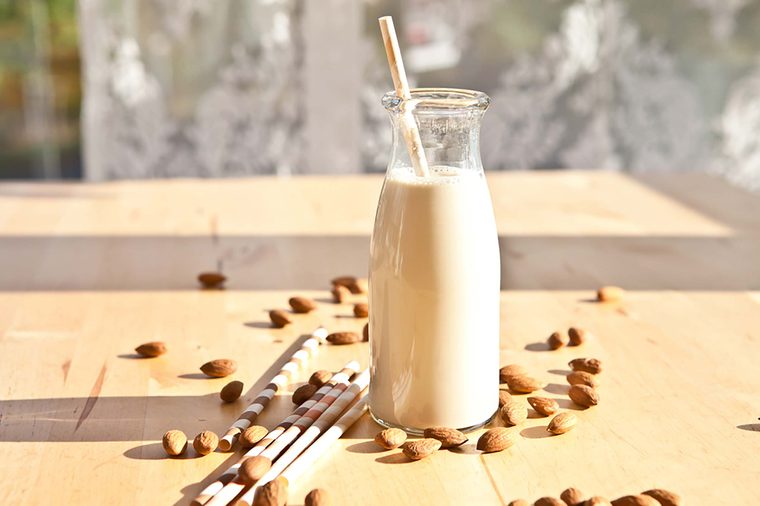
They may avoid some types of milk
People who don’t drink cow’s milk may be less likely to get acne than those who do, says Joel Schlessinger, MD, a dermatologist in Omaha, Nebraska.
A 2016 study of 225 teens aged 14 to 19 that was published in the Journal of the American Academy of Dermatology found that people who drank more low-fat or skim milk had more acne that people who did not drink as much. (The study included teens with moderate acne or no acne.) However, there was no link between acne and the consumption of dairy (in general) or full-fat milk. The authors note that the research on the topic has been mixed, and the study can’t determine if one factor caused the other. (It’s possible that skim milk is devoid of the good-for-your-skin fatty acids found in whole milk.) Some think it has to do with the high ratio of sugar found in skim milk. If you like it, you might consider trying almond milk. “Almond milk contains all of the great vitamins and calcium we need, but without any of the hormones,” Dr. Schlesinger says. Check out these vitamins that can clear acne and give you clearer skin.

They pass on the pasta
There may be less white bread, white pasta, white rice, potato chips, or other high glycemic index (GI)-scoring carbs on the menu for the blemish-free. Instead, they may be more likely to eat foods that rank low on this index, such as multi-grain bread, peanuts, vegetables, and beans. Emerging data suggest that high glycemic index diets may be associated with acne, according to the latest guidelines from the American Academy of Dermatology. Exactly how a diet that is high on the GI index can cause or contribute to acne is not fully understood, but low GI foods keep blood sugar levels stable while high GI foods may cause a blood sugar spike that can lead to inflammation and oil production, which plays a role in acne. What’s more, eating lots of high GI foods can also increase hormones which in turn dial up the activity of oil glands in the skin, causing acne.
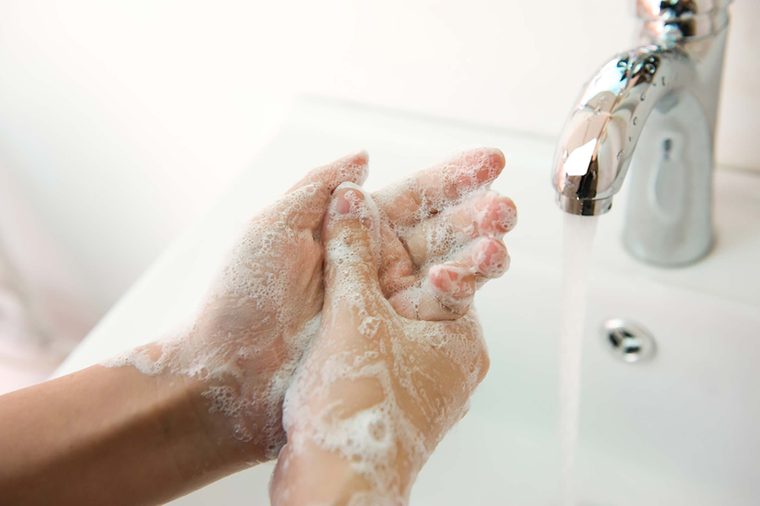
They wash their hands after working out
Sure, working out on a regular basis helps us stay fit and healthy, but if we don’t exercise caution with hand hygiene, we may break out—or worse, because gym equipment can be full of bacteria. “Working out in a gym is potentially very dirty and can cause something that looks just like acne, but is actually a staph infection,” says Dr. Schlessinger. “The best thing to do is to avoid touching your face while playing sports or working out. If you must, bring a towel or use the back of your hand or sleeve.” Don’t miss these 13 surprising home remedies for acne.
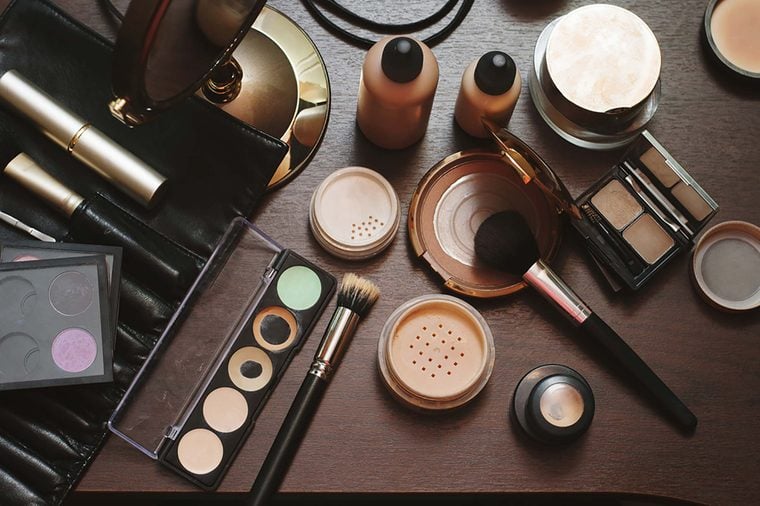
They try not to share makeup
No matter how jealous you are of your BFF’s new bronzer or a co-worker’s mascara, don’t borrow it. “Sharing makeup is sharing bacteria with a friend,” says Dr. Schlessinger. Whatever you do, don’t try on makeup in a store unless you test it on your arm or the back of your hand. Look out for these other ways your makeup can be making you sick.
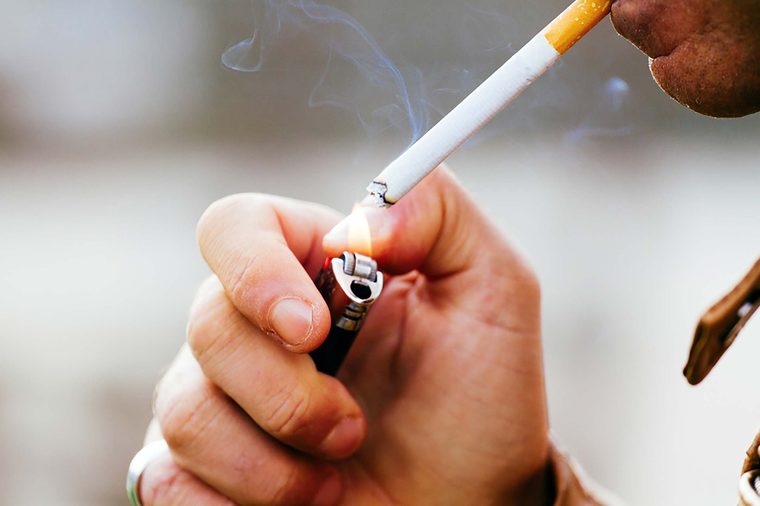
They don’t smoke
In case you needed one more reason to kick the habit, smoking may also cause acne, according to research out of the San Gallicano Dermatological Institute in Rome, Italy. Smokers may be more likely to develop non-inflammatory acne.
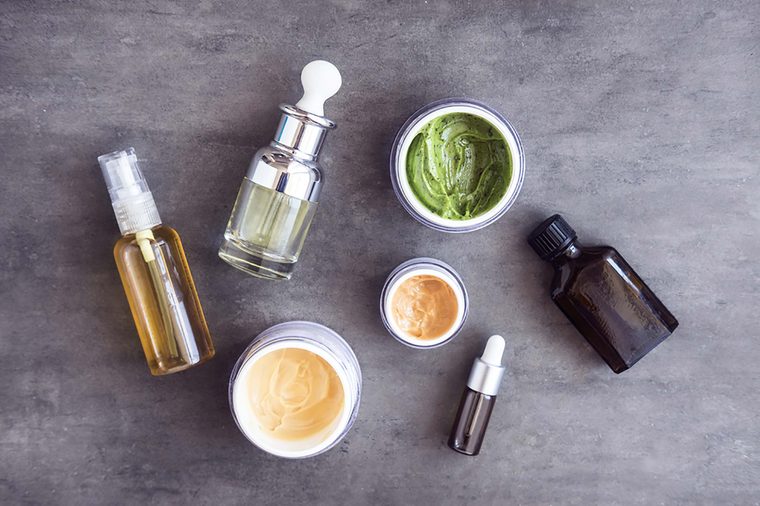
They don’t stop fighting the fight
It can be oh-so-tempting to skip the skin-clearing products in our skin-care regimen, but this is a mistake, says Mark H. Schwartz, MD, clinical assistant professor of plastic surgery at Weill Cornell Medical College in New York City. “It is natural to want to stop using acne-fighting products when your skin is clear, but acne is chronic and requires long-term care to keep it under control—even when you are traveling. ” Make sure you take your acne medications as directed for as long as directed. Check out these 9 detoxifying ingredients you need to add to your routine.

They stay out of the sun
Just how bad is tanning? Do you really need to ask? Skin cancer risk aside, it may also worsen acne. Despite a popular misconception, tanning doesn’t make acne better, warns Dr. Lain. UV rays actually dry out and damage your skin. Certain acne medications also increase sun sensitivity, making a burn more likely. Always wear broad spectrum sunscreen with a sun protection factor of 30 or higher and reapply it frequently.

They protect their skin from pollution
Some research suggests that smog, chemicals, and toxins in the air can clog your pores and cause acne, points out Dr. Schlessinger. If you are a city dweller, there’s not much you can do to avoid pollution, but sunscreen will create a barrier between your skin and the toxins, and antioxidant serums can help fight damaging free radicals in air pollution. Use these surefire tips to get rid of acne once and for all.
